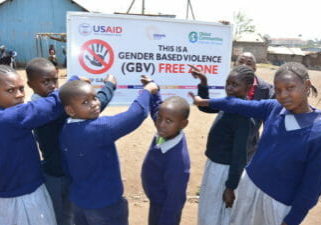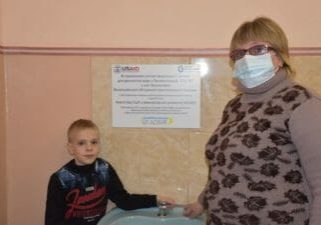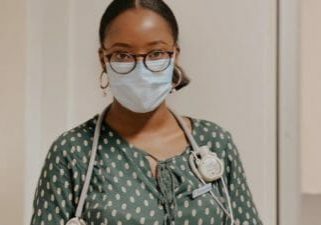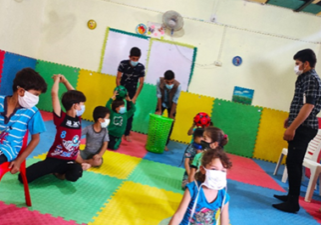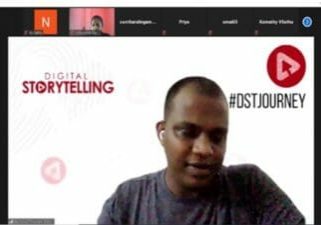News > Blog
Meet Stacey Williams, PCI Changemaker
Published 07/31/2020 by globalcommunities
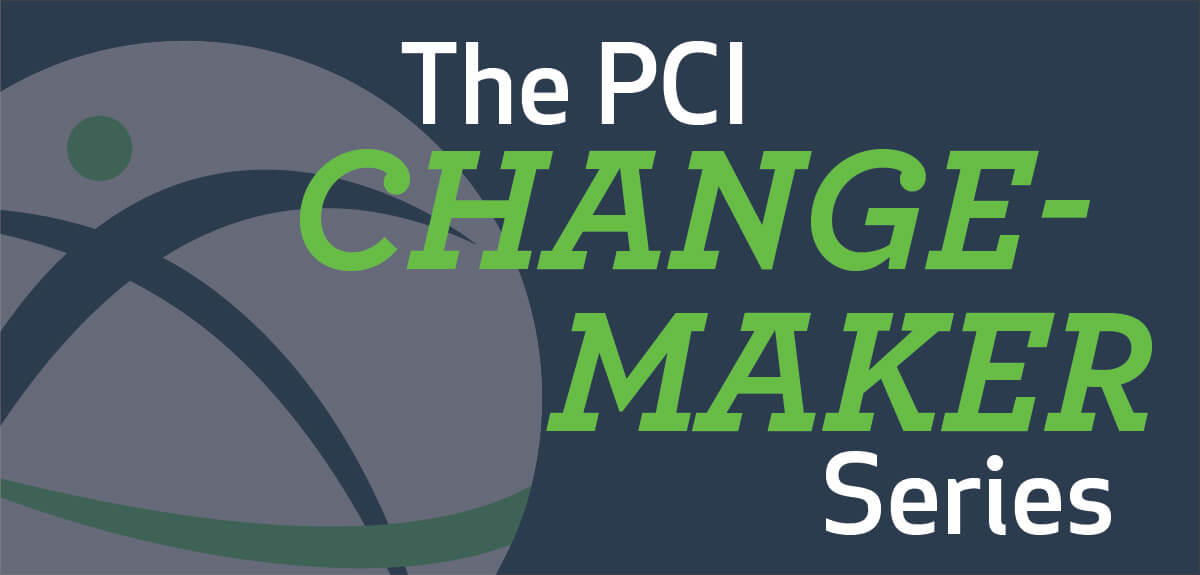
Less than a month ago, Stacey Williams packed up her life on the East Coast and moved to San Diego with three teenagers in tow to begin work as the new Director of Human Trafficking Prevention Programs at PCI, a Global Communities Partner.
Even though the COVID-19 pandemic has upended how she is able to engage with colleagues and do her job, nothing will change her “why.”
“The networks of human trafficking are worldwide and seeing and experiencing how it lives and breathes in the United States is more alarming than in other parts of the world, because people don’t recognize it exists in their own backyards,” Williams says. “… We can’t afford to not be paying attention anymore. We can’t be sleepwalking. We can’t be burying our heads in the sand. Look what 2020 has brought us.”
On this World Day Against Trafficking in Persons, learn more about our latest PCI Changemaker and her team’s ongoing efforts to educate and empower students, parents, teachers, business leaders and other community members in San Diego in the fight against this horrific industry.
What are a few highlights, professionally or personally, that you would like for people to know about you?
 I am a New Yorker by birth but have spent a great many years living and working in Eastern Europe, Africa and Latin America. My first career highlight was serving as a Peace Corps Volunteer in Honduras. This experience was the jump-off point for my work in social justice, which has focused primarily on health and human rights for women and girls. After receiving my Masters in Public Health from Columbia University, I moved to post-conflict Kosovo and managed shelters for survivors of human trafficking while providing and coordinating survivor-focused service and advocacy activities, as well as acting as the Balkans point person on Human Trafficking. I moved between Kosovo, Macedonia and Serbia as hotbeds for human trafficking while working for the United Methodist Committee on Relief, Mercy Corps and the International Organization for Migration.
I am a New Yorker by birth but have spent a great many years living and working in Eastern Europe, Africa and Latin America. My first career highlight was serving as a Peace Corps Volunteer in Honduras. This experience was the jump-off point for my work in social justice, which has focused primarily on health and human rights for women and girls. After receiving my Masters in Public Health from Columbia University, I moved to post-conflict Kosovo and managed shelters for survivors of human trafficking while providing and coordinating survivor-focused service and advocacy activities, as well as acting as the Balkans point person on Human Trafficking. I moved between Kosovo, Macedonia and Serbia as hotbeds for human trafficking while working for the United Methodist Committee on Relief, Mercy Corps and the International Organization for Migration.
When my first child was 2 months old, I moved to Guinea, West Africa, and worked with the International Rescue Committee on their unaccompanied minor program supporting youth who had fled the wars in Liberia and Sierra Leone.
Two children later, I found myself living between a house I was building in a small village in Umbria in Italy and Kenya to work on various human rights-based projects. I also worked in Sierra Leone post-Ebola ensuring education, health and safe family options for young girls orphaned by Ebola who were targets for human trafficking. I moved back to the U.S. about 9 years ago to continue to work on social justice issues in the communities that I lived in. I am thrilled to be joining the PCI family and look forward to working with you all to expand upon the deep and impactful Human Trafficking Prevention portfolio.
What initially drew you to the social justice field, particularly working in the area of health and human rights for women and girls?
When I was in college, I decided I wanted to study abroad. On the spot, at a study abroad fair on campus, I signed up to go to Kenya for five months. It was through the School for International Training and kind of like a pre-Peace Corps. One of the things you have to do is an independent study, and I focused mine on studying street girls. At the time, this was not called ‘human trafficking.’ I don’t even know if they used the term ‘sexual exploitation’ then. They were called street girls or street children. Again, we didn’t have the terminology that we do now, but I saw girls as young as 8 years old being trafficked. I watched servicemen stationed in Kenya buying vulnerable young girls and felt powerless to do anything about it. This really propelled me into the field of social justice. I wanted to give voice to or amply the voices of those who were vulnerable and at risk but who were oftentimes silenced.
What have you come to learn about human trafficking that you didn’t know when you started? Or, how have you seen your understanding of this issue change?
I could not have imagined the extensive reach and networks that human trafficking has on a global scale. And for sure I would not have imagined while working in Eastern Europe or Africa that I would be staring down this issue here in the U.S. I worked extensively on the protection and social service side of human trafficking, and that is absolutely necessary, but I was very attracted to PCI’s role in this space as primary prevention specialists. The extensive evidence-based research led them to not only decide if they should enter the space, but also what role they would take on.
I think it’s incredibly important that we’re stopping the problem before it begins, empowering younger people to make healthy choices in their lives and ensuring that caregivers, teachers and other caring adults are armed with knowledge to not only see the signs of human trafficking but to know what the next right step is to take to protect young people.
You mentioned that you’ve worked on the protection side of human trafficking and you have such extensive experience at the international level. How do you think that perspective and those experiences will inform your work with PCI in San Diego?
I think living in various parts of the world opens you up to being more culturally aware, sensitive and thoughtful to the needs of people from different backgrounds. I have found that my work, whether in Kosovo or Kenya, was informed by the culture of the community I was in. I think having that awareness allows me to be more present and open as I begin my position here. I recognize that I’m new to San Diego, so my first order of business is to listen to the needs of this particular community as well as to those that have been doing the work here. I’m not new to the field of human trafficking, but it’s different wherever you go.
How do you think this issue compares domestically vs. globally?
This is an enormous criminal issue around the world. It’s an $810 million industry here in San Diego and the third largest criminal activity globally. Human trafficking and sexual exploitation go hand in hand, and you will see it everywhere. While working overseas, I was mostly working in the sex trafficking space—someone answered a job ad, or a friend told them about a great opportunity for work in another country and before they knew it, they were trafficked across borders, passports confiscated. Here in the U.S., we are not talking about border crossings, sometimes not even state lines or even city lines. It is local. And while PCI and our partners are working extensively in the sex trafficking space, labor and other forms of trafficking are huge industries as well.
What impact has COVID-19 had on human trafficking?
We have experience dealing with human trafficking within natural disaster and conflict, but COVID-19 has thrown us a curveball. COVID-19 has made it easier for buyers to enter into the space. The National Center for Missing & Exploited Children has experienced a 90.46% increase in CyberTipline reports between January and June of this year as compared to last year. Everyone is home and is online, which means that buyers are also online in games and social media. They are moving in that space, so our programs are also pivoting to make sure that we are more thoughtfully addressing the needs of young people, caregivers and teachers to recognize and respond to the new reality that we are all living in.
As you know, today is the World Day Against Trafficking in Persons. While this year’s focus is on first responders, what role do you think everyone can play in preventing this issue or educating others about it?
I think first and foremost is basic awareness that it’s happening. As I shared, when I first moved back to the U.S., I was surprised that human trafficking was present here. But if we open our eyes to what is happening around us, we see all the clues. As caregivers, caring adults, friends, neighbors and teachers, we all have a role to be aware of issues outside of ourselves. If you see something that doesn’t seem right, it probably isn’t. Research groups in the area that are working on the issue. Call the police and let them know you see something that resembles a trafficking situation. We can all contribute to prevention.
What are common misconceptions about human trafficking, or what do you wish people knew about this issue?
While we know that young people who are experiencing homelessness or in the foster care system are trafficked at higher rates, this is not an issue that affects a particular social class, race or ethnicity. Nor does it only affect only girls. In fact, we are stepping away from using gender conforming language, because we recognize that this limits the scope of who is able to access programs and services.
Considering how tough this line of work is, what keeps you motivated and grounded?
Everyone has to find out what self-care means for them. By no means is there a one-stop shop, but everyone needs something because you do take this type of work home. It’s not a 9-to-5 job in any way, shape or form. I really got heavily involved into meditation and yoga. I’m a certified Kundalini Yoga + Meditation instructor and Holistic Wellness Coach, and I really find that this type of self-care is really supportive in the work that we do every single day. As practitioners and people who are working in the field, it’s really important that we’re taking care of ourselves, so that we can do the very best work that we need to do. It’s a non-negotiable, daily practice.
Is there anything in particular about PCI’s portfolio of work that you’re excited to be diving into?
I’m excited about the work that the San Diego Trafficking Prevention Collective is doing, of which PCI is a part. Coming together from different organizations (3Strands Global Foundation, Point Loma Nazarene University, UBS Optimus Foundation, the University of San Diego and the San Diego County District Attorney’s Office) to collectively do this prevention work is no small feat. I am so impressed with the important and valuable work of the Collective and excited to be a part of the team as we grow and explore new opportunities for replicating this model.
I’m also really excited about our Employers Ending Exploitation (E3) Alliance, which is just taking off. I think it’s such an exciting opportunity to involve businesses as partners committed to combatting sex trafficking in San Diego. They have a large role to play, and I think that’s been a very quiet space that nobody’s working in. The fact that we’re going to be working in that space and businesses are signing on is really exciting.
Pivoting Our Programming in Response to COVID-19
Young people are spending more time online and potentially face an increased risk of exploitation during the COVID-19 pandemic. As part of our work with the San Diego Trafficking Prevention Collective, PCI’s Project ROOTS program created a COVID-19 Survival Kit for parents and educators to implement at home or via distance learning. The kit includes short, easy activities on emotional well-being, online safety and empathy and has had more than 1,300 unique views since inception.
The San Diego Trafficking Prevention Collective programs are now available for distance learning as well. Learn more about these free digital training opportunities for all San Diego County public school teachers and students today.
Putting Human Trafficking Out of Business
Local businesses may unknowingly cross paths with commercial sexual exploitation. Some may even indirectly contribute to the facilitation of sex trafficking transactions. PCI’s Employers Ending Exploitation (E3) Alliance leverages the collective power of the San Diego business sector to eradicate sex trafficking.
By becoming a Business Partner of E3, you will be guided step-by-step through a full suite of tools and resources to educate your entire workforce about the truths of sex trafficking and how to identify and report it. Membership in E3 will increase safety for employees & consumers, and will decrease legal, financial and reputational risk. Social distance, online training available.

